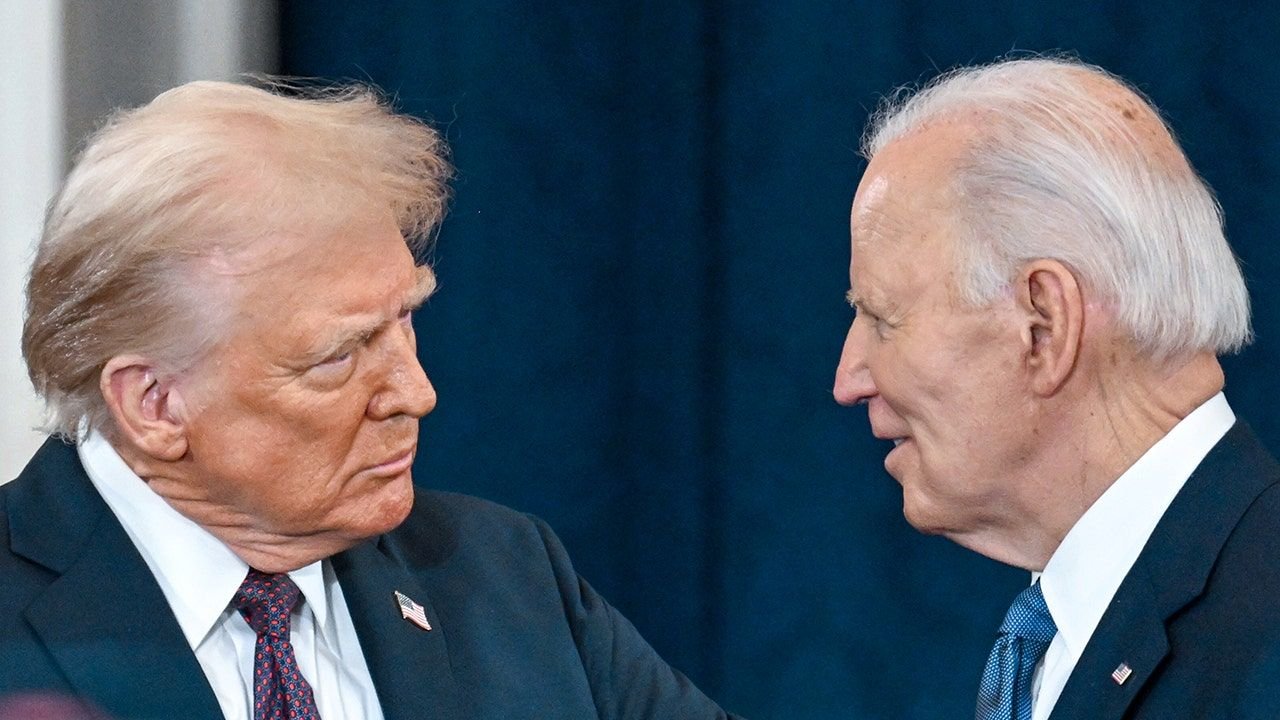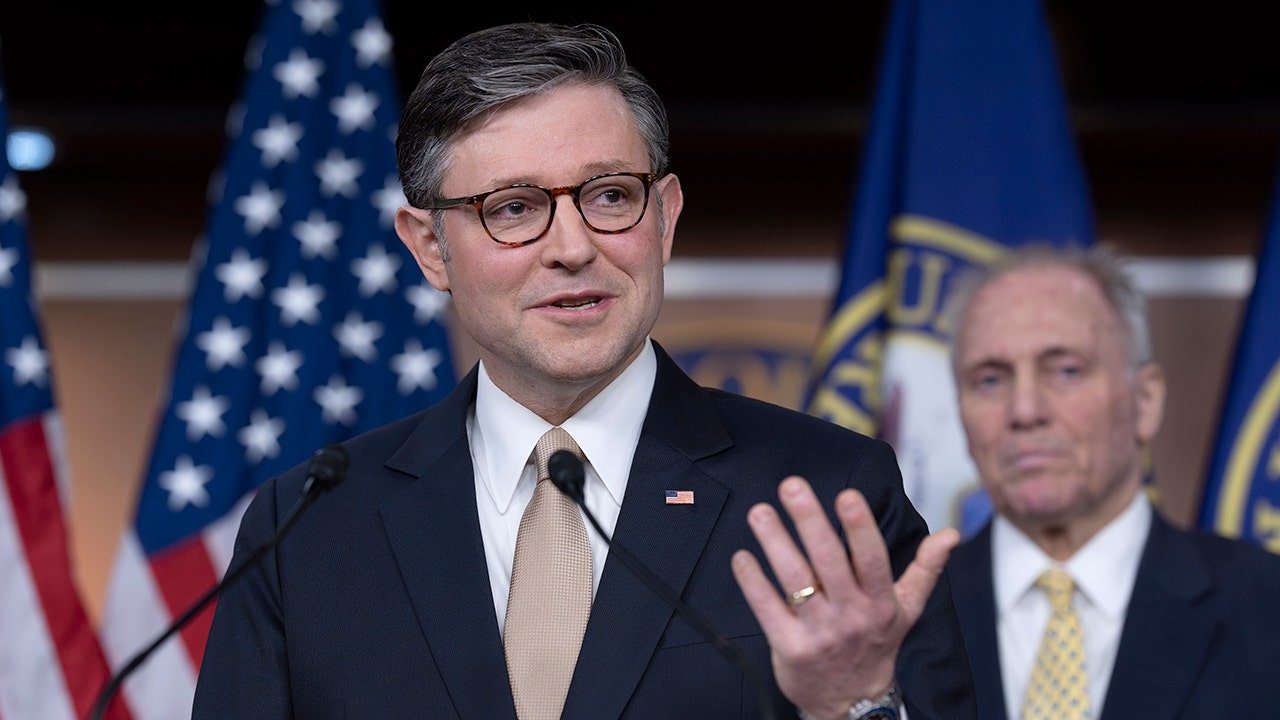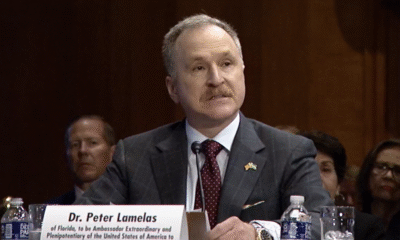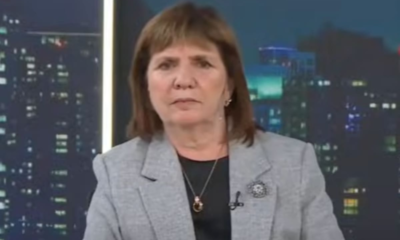INTERNACIONAL
Trump buries Biden foreign policy in first 100 days

One hundred days into his new administration, President Donald Trump has reset negotiations with allies and foes across the globe, and experts say one is certain: it is all transactional.
Gone are the days when the U.S. could be drawn to throw its force around the world solely in the name of defending or spreading democracy. Global leaders are learning to speak a new language with U.S. leadership, one that is less about ideology and more about how their interests benefit U.S. interests.
«There is a lot more transactional engagement rather than I think we’re ideological-based, policy decisions that were sort of the hallmark of the Biden administration,» said Gregg Roman, executive director of the Middle East Forum.
Here is a round-up of how Trump has changed U.S. foreign policy since taking office:
FOX NEWS POLL: THE FIRST 100 DAYS OF PRESIDENT TRUMP’S SECOND TERM
Iran’s supreme leader Ali Khamenei, left, and President Donald Trump are working on a nuclear deal. (West Asia News Agency, Reuters | SAUL LOEB/AFP via Getty Images)
Negotiating a deal to avert a nuclear Iran
Former President Joe Biden toyed with reviving a nuclear deal with Iran and criticized Trump’s decision to pull the U.S. out of the 2015 Joint Comprehensive Plan of Action, but his administration made little progress toward serious negotiations.
Trump has now expressed interest in a new nuclear deal. He told Israel the U.S. would not come to their aid in attacking Iran until diplomatic negotiations played out.
As Trump’s team met with Iranian counterparts in Oman this weekend for a second round of nuclear talks, he issued another threat: if negotiations whither away, the U.S. would not be dragged by Israel into war with Iran but will be «leading the pack.»
Taking Yemen’s Houthis head-on
An offensive campaign against Yemen’s Houthi terrorists launched six weeks ago has struck more than 800 targets and cost nearly $1 billion – a sharp departure from the tit-for-tat retaliatory strikes seen under the Biden administration, when Houthis attacked U.S. naval ships and Western commercial vessels.
«Biden pursued a policy of retaliatory strikes: If you hit us, we’ll hit you,» said Roman. «What Trump is trying to do is what I call a salting the earth strategy. If you dare challenge American military supremacy or the ability for us to conduct free trade to the bottom of or through the Gulf of Aden, Gulf of Yemen, Red Sea, Suez … We will attempt to end your ability to wage war on the United States in its interests.»
US STRIKES KILL HUNDREDS OF HOUTHI FIGHTERS, HIT OVER 800 RED SEA TARGETS: CENTRAL COMMAND

President Donald Trump is taking a different approach when dealing with Houthi fighters. (AP Images/Getty Images)
From funding Ukraine ‘as long as it takes’ to demanding a negotiated settlement
While Biden had promised the U.S. would stand by Ukraine «as long as it takes» in the war against Russia, Trump expressed a desire to see the war come to an end, promising that he could end the war on «day one» of his presidency.
One hundred days in, the war is not over. Negotiations are ongoing, and Trump has jumped between sounding off in frustration with Ukrainian President Volodymyr Zelenskyy and Russian President Vladimir Putin.
As Putin continues to strike even civilian regions of Ukraine, Trump questioned on Saturday whether the Russian leader truly wants peace or is «tapping me along.»
He again questioned whether he would need to slap «secondary sanctions» on nations that do business with Russia to starve its war coffers.
On Monday, Russia offered a three-day ceasefire from May 8-10, but the White House was not satisfied. Press secretary Karoline Leavitt said Trump wants a «permanent ceasefire.»
Trump met face-to-face with Zelenskyy in Rome on Saturday, the first time since their infamous Oval Office spat in February, after slamming Zelenskyy’s latest rejection of his peace proposal, one that would have formally ceded Crimea to the Russians.

President Donald Trump, left, met face-to-face with Ukrainian President Volodymyr Zelenskyy for the first time since their Oval Office spat in February over the weekend. (Vatican and Ukraine Ambassador to Holy See)
Strategic takeover: New pushes for Greenland, Panama
The Monroe Doctrine is back, analysts say, and Trump wants both Greenland and the Panama Canal under U.S. control.
The proposals drew shock across the world, but at least in Panama, Trump’s bold words prompted a proposal to offer the U.S. «first and free» passage for its warships, Defense Secretary Pete Hegseth said earlier this month. It also spurred the proposed sale of two ports of entry from Hong Kong-based CK Hutchison to U.S.-based BlackRock, though that deal has been delayed by Chinese regulatory and political scrutiny.
Efforts to attain Greenland have proved less successful. Tough talk against Denmark and its ownership of Greenland has ratcheted up tensions with the NATO ally and Greenland’s leadership has expressed little interest in becoming a part of the U.S.
However, Trump has called out the threat of Russia and China’s increasing arctic military capabilities – the shortest range for a missile to travel from Russia to the U.S. would be over the icy island’s territory. Trump is also interested in the rare earth mining potential of the massive swath of land.

President Donald Trump wants the U.S. to control the Panama Canal. (REUTERS/Enea Lebrun/File Photo)
Allies step up for their own defense
Trump’s threats to pull out of the NATO alliance – or refuse to come to the defense of allies that do not contribute enough military spending – has left nations across the world planning for the contingency that they may have to defend themselves without U.S. aid.
The European Union announced a plan for its nations to spend $840 billion to «re-arm Europe» after Trump halted all aid to Ukraine in March.
Countries like Spain, Belgium and Sweden have all announced plans this year to increase defense spending to meet NATO’s 2% target, while eastern European states near Russia’s border, including Lithuania, Latvia, Estonia and Poland, have announced plans to increase defense spending to around 5%.
Punishing China for unfair trade practices
Concern over China’s hegemonic ambitions bridges the partisan divide, but the Biden White House never considered such drastic measures as 145% tariffs.
Trump has said the goal of the tariffs is to both bring back US manufacturing after decades of offshore production and punish China for intellectual property theft, a massive trade imbalance, and fentanyl flowing from China to the U.S. A free trade push in the early 2000s had wrongly assumed liberal trade policies would bring democratic values and free markets into Chinese borders, his supporters argue.
Trump has insisted that President Xi Jinping wants to cut a deal to lower the soaring tariffs, even as China has rejected the prospect of talks.
CLICK HERE TO GET THE FOX NEWS APP
It is unclear what sort of realistic concessions the U.S. could get out of a deal, perhaps promises to buy more American-made agricultural products, fuel or other specialty goods.
For now, steep tariffs remain, and China is choking off U.S. supply of critical minerals, which could spell deep trouble for everyday electronics, electric vehicles and defense equipment.
Donald Trump,White House,Foreign Policy,Middle East,Russia,Ukraine,China,Greenland
INTERNACIONAL
Tailandia advirtió que los enfrentamientos armados con Camboya podrían derivar en una guerra “a gran escala”

Tailandia advirtió este viernes que los enfrentamientos armados con Camboya podrían escalar a una guerra a gran escala, en el segundo día consecutivo de hostilidades que ha dejado al menos 16 muertos y obligado a evacuar a más de 138.000 personas en ambos lados de la frontera.
“Si la situación se agrava podría derivar en una guerra, aunque por ahora sigue limitada a enfrentamientos”, declaró el primer ministro interino tailandés, Phumtham Wechayachai, ante la prensa en Bangkok.
La tensión se disparó el jueves debido a una disputa territorial de décadas entre los dos países del sudeste asiático, con combates que incluyeron el uso de tanques, aviones de combate, artillería y cohetes BM-21.
Se trata de la escalada militar más grave desde 2011 en una zona de 800 kilómetros de frontera, donde persisten áreas no delimitadas oficialmente, salpicadas de templos antiguos.
Según el Ministerio del Interior tailandés, las autoridades evacuaron a 138.000 civiles, incluidos 428 pacientes hospitalarios, desde cuatro provincias limítrofes con Camboya.
El balance oficial en Tailandia ascendió a 15 muertos —un soldado y 14 civiles— y 46 heridos. Por su parte, Camboya reportó un muerto y cinco heridos, en su primer informe oficial desde el inicio del conflicto.

Los enfrentamientos se reanudaron en la madrugada del viernes en tres puntos distintos, de acuerdo con el ejército tailandés. Según su versión, las fuerzas camboyanas lanzaron fuego con armas pesadas, artillería y cohetes múltiples, a lo que las tropas tailandesas respondieron con “fuego de apoyo apropiado”. El ejército agregó que los choques incluyeron seis zonas de combate el jueves, entre ellas dos antiguos templos.
En el municipio camboyano de Samraong, a 20 kilómetros de la frontera, periodistas de la agencia AFP registraron disparos lejanos de artillería durante la mañana. “Vivo muy cerca de la frontera. Tenemos miedo porque empezaron a disparar de nuevo sobre las 6 de la madrugada”, relató Pro Bak, un residente de 41 años que huía con su familia hacia un templo budista. “No sé cuándo podremos volver a casa”, añadió.
La crisis diplomática también se agravó. Tailandia expulsó al embajador camboyano y llamó a consultas a su representante en Phnom Penh, luego de que una mina terrestre hiriera a cinco soldados tailandeses. Camboya respondió retirando a todos sus diplomáticos en Bangkok, excepto uno, y degradando las relaciones al nivel más bajo.
El Consejo de Seguridad de la ONU se reunirá de urgencia y a puerta cerrada este viernes, tras una solicitud del primer ministro camboyano, Hun Manet.

En paralelo, Estados Unidos y Francia instaron al cese inmediato de las hostilidades, mientras que la Unión Europea y China expresaron una profunda preocupación y pidieron diálogo entre las partes.
Desde 2008 hasta 2011, los dos países ya libraron enfrentamientos en la zona, que dejaron 28 muertos y decenas de miles de desplazados. Una decisión de la Corte Internacional de Justicia en favor de Camboya calmó las tensiones durante una década. Sin embargo, la situación volvió a deteriorarse en mayo de este año, tras la muerte de un soldado camboyano en un nuevo choque fronterizo.
Los combates actuales reflejan la fragilidad de la paz en la región y han despertado la preocupación de la Asociación de Naciones del Sudeste Asiático (ASEAN).
El primer ministro de Malasia, Anwar Ibrahim, quien ocupa la presidencia rotativa del bloque, declaró haber hablado con sus homólogos de Camboya y Tailandia, a quienes pidió diálogo inmediato. Según dijo, ambos mostraron “señales positivas y predisposición” a buscar una salida pacífica.
(Con información de AFP)
Asia / Pacific,Defense,Diplomacy / Foreign Policy,SINGAPORE
INTERNACIONAL
Fox News Poll: The GOP is seen as more likely to have a clear plan for the country

NEWYou can now listen to Fox News articles!
With the 2026 midterm elections more than a year away, a new Fox News survey finds that while the Republican Party has lost some ground to the Democratic Party on handling key issues, voters are more likely to think the GOP has a clear plan for dealing with the country’s problems.
The survey, released Thursday, finds that by a 10-point margin, more voters think the Republicans have a clear plan for the U.S. than the Democrats: 43% vs. 33%. Still, majorities feel neither the GOP (54%) or the Democrats (64%) have a plan. This is about where sentiment was three years ago, the last time the question was asked.
FOX NEWS POLL: TRUMP FACING HEADWINDS AT SIX-MONTH MARK
Far more Republicans (79%) than Democrats (51%) are confident their party has a clear plan, and that’s what hurts the Democrats. While at least two-thirds of independents feel neither party has a plan, more trust the GOP (30% vs. 25%).
At the same time, the survey shows some significant erosion in the GOP’s handling of key issues compared to the last time Fox asked in 2023, including in areas where they are traditionally preferred.
Voters view the Republican Party as better able to handle national security (by 14 points), immigration (+6R), and government spending (+5R) while the Democratic Party is favored on climate change (by 23 points), health care (+19D), social security (+17D), education (+15D), and energy policies (+6D).
The parties are rated about equally on inflation (+1D), gun policy (even), the economy (+1R), and foreign policy (+3R).
Compared to 2023, support for the GOP is down on immigration by 4 points, national security by 6, government spending by 6, foreign policy by 9, and the economy by 14. Plus, the Republicans’ 12-point advantage on inflation has disappeared, as Democrats have a 1-point edge today.
While the Democrats have largely maintained support on their best issues, it’s noteworthy they saw a 12-point increase on education, as voters have been split on who would better handle the issue for the last few years.
FOX NEWS POLL: APPROVAL OF SCOTUS AT 5-YEAR HIGH, REBOUNDING FROM RECORD LOW IN 2024
These shifts can mostly be attributed to self-identified Democrats solidifying their preference for their own party’s handling of the issues, as well as independents lessening their support for Republicans or switching to Democrats.
Self-identified Republicans continue to express high levels of support for their party on the issues.
«Independents and even some Democrats had soured on President Biden and the Democratic Congress by 2023 and 2024, but they have shifted to the left a bit in 2025 in response to the policies of President Trump and the Republicans,» says Republican pollster Daron Shaw, who conducts the Fox News survey with Democrat Chris Anderson. «An appreciable part of this is performance related. Without obvious economic and foreign policy victories, independents and soft Democrats could drift to the left, which could scramble the electoral dynamic heading into 2026.»
Overall, views of both major political parties are underwater. By 2 points, the Republican Party has a slightly better favorable rating (44% favorable) than the Democratic Party (42%), but more than half view both parties negatively (56% and 57% unfavorable, respectively). That’s relatively unchanged since April.
Positive views of the Republican Party have shown steady growth since October 2019, while the Democratic Party has been on a downward trajectory, reaching a record low in April (41% favorable).
The Republican Party enjoys more support among their party faithful (83% have a favorable view) than the Democratic Party (78% favorable). Seven in 10 independents have a negative view of both.
CLICK HERE FOR CROSSTABS AND TOPLINE
Conducted July 18-21, 2025, under the direction of Beacon Research (D) and Shaw & Company Research (R), this Fox News survey includes interviews with a sample of 1,000 registered voters randomly selected from a national voter file. Respondents spoke with live interviewers on landlines (114) and cellphones (636) or completed the survey online after receiving a text (250). Results based on the full sample have a margin of sampling error of ±3 percentage points. Sampling error for results among subgroups is higher. In addition to sampling error, question wording and order can influence results. Weights are generally applied to age, race, education, and area variables to ensure the demographics of respondents are representative of the registered voter population. Sources for developing weight targets include the American Community Survey, Fox News Voter Analysis and voter file data.
INTERNACIONAL
«Fake news»: la Casa Blanca trata despegar a Donald Trump del caso Epstein y frenar la tormenta política

La ofensiva contra Barack Obama
Donald Trump,Jeffrey Epstein,Estados Unidos

 ECONOMIA3 días ago
ECONOMIA3 días agoEl consumo en Argentina crece 4% en junio, ante menor inflación y más crédito

 POLITICA1 día ago
POLITICA1 día agoMáximo Kirchner declaró una fortuna de 8.300 millones de pesos: representa un 76% más que el año anterior

 POLITICA2 días ago
POLITICA2 días agoLos organizadores de la Derecha Fest pasaron un video de Villarruel y algunos asistentes gritaron “traidora”





































